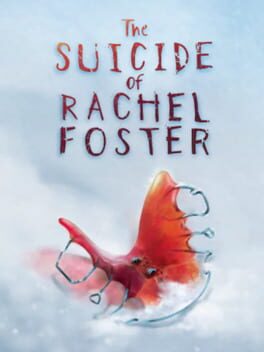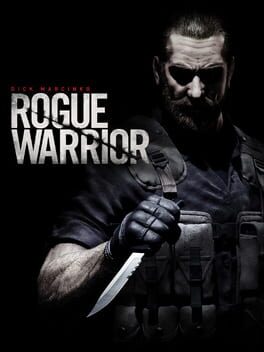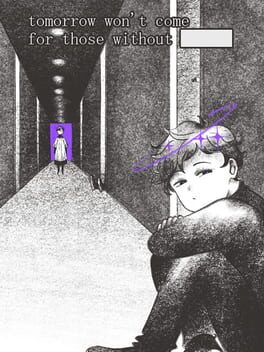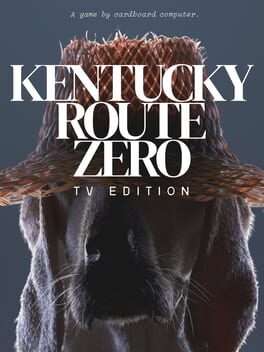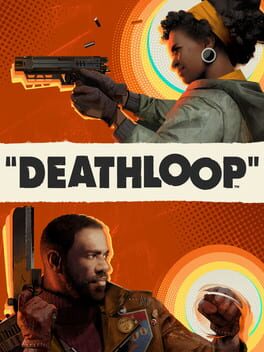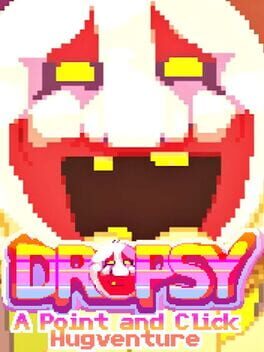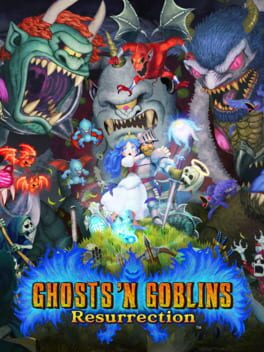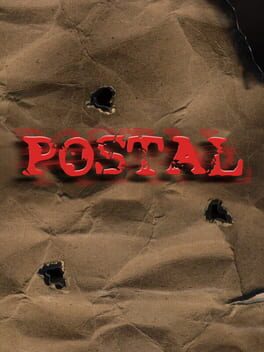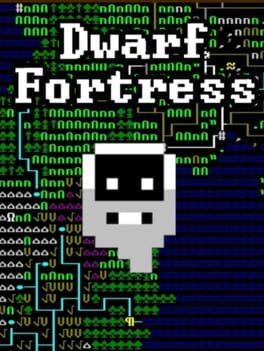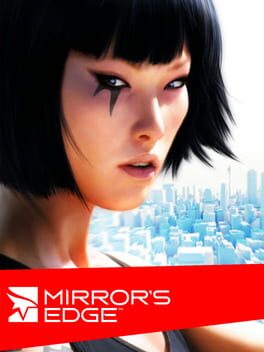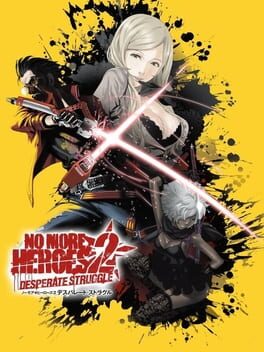Dadhunter
234 Reviews liked by Dadhunter
What the Dub?!
2021
This review contains spoilers
This is like one of the craziest games I've ever played
This game has atmosphere like a motherfucker, genuinely when it started off I loved exploring the hotel, it was a lot of fun and very cozy, then when the game wants the exact same hotel to be terrifying it is. The slow arduous journey from the chapel to your bedroom was the most tense I've felt in a long time. The game's sound design is also on point. Except for the weird end credits song. That kinda sucked.
Anyways, all that comes at odds with this game's baffling story which, as the rest of these reviews will tell you, is hilariously bizarre and also mostly about how cool pedophiles are. This game fucking SENT ME.
The voice acting is honestly so perfect for the dialogue. It's awkward and stilted and also somehow brimming with emotion. Like everyone voice acting was constantly on the verge of laughing while recording, or having a mental breakdown.
So right, you start thinking pretty soon into the game that the father is actually gonna be a misunderstood good guy, like everyone thought he was having sex with a 16 year old (or as this game keeps saying a 16 years-old), but he was just a genuinely understanding man who actually understood Rachel when nobody else did, and that relationship made say her dad or little brother jealous and so they started a rumor about the whole pedophile thing when in reality he was just the only one in the small town kind enough and smart enough to understand her and they had like a parental child bond, or like even a mutual friendship or something, but no, the dad is actually just an ethical pedophile and his dumb idiot prude wife just couldn't handle him experiencing so much love.
Also say that you're a woman and you find out your near-50 year old husband has impregnated a 16 year old girl. I'd say that the more rational response would be to kill your husband, not the 16 year old, but that's the game's final twist, and it's hilarious.
Most of this game's story is setting up a romance between the main character, Nicole, the daughter of the aforementioned ethical pedophile, and Irving, a character who is supposedly a FEMA worker, but in a reveal that was all too telegraphed turns out to be the little brother of the 16 year old, the titular Rachel. By the way there's a moment before the reveal where Irving pretends to be talking to someone else, but it's so incredibly obvious that it's just him doing the voice of an old lady so like, for a really long time I knew some shit was happening with him, and Nicole just doesn't realize that it was obviously him pitching his voice up a little bit. Once again, this game could absolutely send me. Also, that romance was actually kinda charming because of how awkward and bizarre the voice performance is, and genuinely I wish this game's ending was just them unraveling the mystery and then just like shrugging to each other and then leaving to go on the date they sorta set up. Like, man this sure was fucked up, but like idk at least we have each other. I don't know, I know there's some dialogue relating to their romance I missed so maybe I wouldn't like it so much if I had experienced it fully. Maybe it was because at that point their relationship was the only part of the game's story that wasn't a total dumpster fire and would've ended the game on at least something I liked.
The puzzles in this game are all basic and I never got lost, except for when I wanted to, like it's all there for a basic simple walking sim, and that's what it is. But everything else around it goes fucking crazy by the latter half, it's amazing.
I haven't laughed at a videogame this hard in so long, and I will say, even though this game is basically just 3 hours of defending the honor of a fictional pedophile, it really isn't that gross of a game. Maybe it's just because of how silly it all is, or maybe it is the voice work which made me laugh at all the big emotional scenes, but it plays out more like the devs being like "Oh, you fool, you thought the pedophile was a bad guy? He was actually the good guy and you were the bad guy for being mean to your classmate when you were a teenager!" Then some creepy person telling you about why age of consent laws are tyranny, like they only made the dad, once again, have sex with a high schooler, just so you'd be surprised when it turns out he was actually the good guy, and that's just kinda funny.
So this game hints constantly at the fact that Rachel is still alive or like is a ghost, but it never confirms it, like it should have, until near the end when it's revealed that yes, she is in fact a spooky ghost and can do spooky ghost things like possess people and write stuff on chalkboards. This is very very funny, and also is so stupid and ends anything this game could've done that was remotely good. Like they would talk a lot about how love stays within the hotel's walls, or like Rachel is still with us, and you think it's metaphorical, but no it's all literal and the game ends with Rachel possessing Nicole and trying to kill herself, because she thinks Nicole killed her? Rachel calls Nicole her murderer near the end even though she isn't. Thinking about it, you do get the keys to your mom's car, who was the killer, right before that, so you think that her writing "murderer" on a chalk board was referencing your mom, but no she does try to kill Nicole at the end. I don't get it, but the game demonizes Nicole for being mean to Rachel when she was 16 and also for paying more attention to her Hockey Finales then to if her mom was present during parts of that game, which is hilarious, like most of this game's plot, but man does it really suck how this game had the potential to be unironically good, but now can only be enjoyed entirely ironically.
The setup is decent, the characters are poorly acted and poorly written, but incredibly charming mostly because of those two things, but then the game had to go and defend pedophilia. You don't ever come back from that.
All in all this is the most insane game ever made, and I think it may be the most perfect fit for "so bad it's good" or whatever you want to call it, but of course I completely understand how subjective art is and that this game surely isn't for anyone.
Never after finishing a game has my head been full of so many thoughts, it's like a shotgun just went off in my brain. Like, why is this game? Why would you make this game? Who would make this game? How did this game develop into what it currently is?
I'm not tagging this review as spoilers because it honestly doesn't matter and I think that already knowing how silly and awful this game is before going in will only enhance your experience. Play at your own risk. Seriously. What the FUCK is this game.
This game has atmosphere like a motherfucker, genuinely when it started off I loved exploring the hotel, it was a lot of fun and very cozy, then when the game wants the exact same hotel to be terrifying it is. The slow arduous journey from the chapel to your bedroom was the most tense I've felt in a long time. The game's sound design is also on point. Except for the weird end credits song. That kinda sucked.
Anyways, all that comes at odds with this game's baffling story which, as the rest of these reviews will tell you, is hilariously bizarre and also mostly about how cool pedophiles are. This game fucking SENT ME.
The voice acting is honestly so perfect for the dialogue. It's awkward and stilted and also somehow brimming with emotion. Like everyone voice acting was constantly on the verge of laughing while recording, or having a mental breakdown.
So right, you start thinking pretty soon into the game that the father is actually gonna be a misunderstood good guy, like everyone thought he was having sex with a 16 year old (or as this game keeps saying a 16 years-old), but he was just a genuinely understanding man who actually understood Rachel when nobody else did, and that relationship made say her dad or little brother jealous and so they started a rumor about the whole pedophile thing when in reality he was just the only one in the small town kind enough and smart enough to understand her and they had like a parental child bond, or like even a mutual friendship or something, but no, the dad is actually just an ethical pedophile and his dumb idiot prude wife just couldn't handle him experiencing so much love.
Also say that you're a woman and you find out your near-50 year old husband has impregnated a 16 year old girl. I'd say that the more rational response would be to kill your husband, not the 16 year old, but that's the game's final twist, and it's hilarious.
Most of this game's story is setting up a romance between the main character, Nicole, the daughter of the aforementioned ethical pedophile, and Irving, a character who is supposedly a FEMA worker, but in a reveal that was all too telegraphed turns out to be the little brother of the 16 year old, the titular Rachel. By the way there's a moment before the reveal where Irving pretends to be talking to someone else, but it's so incredibly obvious that it's just him doing the voice of an old lady so like, for a really long time I knew some shit was happening with him, and Nicole just doesn't realize that it was obviously him pitching his voice up a little bit. Once again, this game could absolutely send me. Also, that romance was actually kinda charming because of how awkward and bizarre the voice performance is, and genuinely I wish this game's ending was just them unraveling the mystery and then just like shrugging to each other and then leaving to go on the date they sorta set up. Like, man this sure was fucked up, but like idk at least we have each other. I don't know, I know there's some dialogue relating to their romance I missed so maybe I wouldn't like it so much if I had experienced it fully. Maybe it was because at that point their relationship was the only part of the game's story that wasn't a total dumpster fire and would've ended the game on at least something I liked.
The puzzles in this game are all basic and I never got lost, except for when I wanted to, like it's all there for a basic simple walking sim, and that's what it is. But everything else around it goes fucking crazy by the latter half, it's amazing.
I haven't laughed at a videogame this hard in so long, and I will say, even though this game is basically just 3 hours of defending the honor of a fictional pedophile, it really isn't that gross of a game. Maybe it's just because of how silly it all is, or maybe it is the voice work which made me laugh at all the big emotional scenes, but it plays out more like the devs being like "Oh, you fool, you thought the pedophile was a bad guy? He was actually the good guy and you were the bad guy for being mean to your classmate when you were a teenager!" Then some creepy person telling you about why age of consent laws are tyranny, like they only made the dad, once again, have sex with a high schooler, just so you'd be surprised when it turns out he was actually the good guy, and that's just kinda funny.
So this game hints constantly at the fact that Rachel is still alive or like is a ghost, but it never confirms it, like it should have, until near the end when it's revealed that yes, she is in fact a spooky ghost and can do spooky ghost things like possess people and write stuff on chalkboards. This is very very funny, and also is so stupid and ends anything this game could've done that was remotely good. Like they would talk a lot about how love stays within the hotel's walls, or like Rachel is still with us, and you think it's metaphorical, but no it's all literal and the game ends with Rachel possessing Nicole and trying to kill herself, because she thinks Nicole killed her? Rachel calls Nicole her murderer near the end even though she isn't. Thinking about it, you do get the keys to your mom's car, who was the killer, right before that, so you think that her writing "murderer" on a chalk board was referencing your mom, but no she does try to kill Nicole at the end. I don't get it, but the game demonizes Nicole for being mean to Rachel when she was 16 and also for paying more attention to her Hockey Finales then to if her mom was present during parts of that game, which is hilarious, like most of this game's plot, but man does it really suck how this game had the potential to be unironically good, but now can only be enjoyed entirely ironically.
The setup is decent, the characters are poorly acted and poorly written, but incredibly charming mostly because of those two things, but then the game had to go and defend pedophilia. You don't ever come back from that.
All in all this is the most insane game ever made, and I think it may be the most perfect fit for "so bad it's good" or whatever you want to call it, but of course I completely understand how subjective art is and that this game surely isn't for anyone.
Never after finishing a game has my head been full of so many thoughts, it's like a shotgun just went off in my brain. Like, why is this game? Why would you make this game? Who would make this game? How did this game develop into what it currently is?
I'm not tagging this review as spoilers because it honestly doesn't matter and I think that already knowing how silly and awful this game is before going in will only enhance your experience. Play at your own risk. Seriously. What the FUCK is this game.
Rogue Warrior
2009
i have a fondness for games where you get what you paid for. within two minutes of opting for a 'new game' in rogue warrior, your squadmates - thinly-veiled samuel l jackson and thinly-veiled robert de niro - are blown to bits by grenade shrapnel. dick marcinko, voiced by mickey rourke, both of whom are somehow channeling the greatest, paunchiest, and most inebriated of steven seagal, is the only man left alive. your commanding officer tells you you've gotta pack it in and come home, the operation's a bust. dick sweatily rejects this proposition and offers a sound rebuttal; fuck no, he's got commies to kill. not ten seconds later dick 'stealth' kills someone and, verbatim, says 'lights out, motherfucker.'
so at the low cost of 0 dollars, i pretty much immediately got what i wanted. quintessential self-aggrandizing, vulgar, lunatic digital autofiction for SICKOS. you clear a cramped room full of baddies and mickey rourke gravelly mutters 'the soviet fuckin union can fondle my hairy nuts'. you prepare to rappel and he claims 'like my ex-wife used to say, you go down before you can get in.' you snap some poor DRPK dudes neck and he practically yells 'suck my balls, my hairy fuckin big balls, wrap em around your fuckin mouth, im gonna shove it up your ass.'
on top of this - and im not sure if this is just rpcs3 or not - the game has easily the fastest boot-up-to-gameplay time ive seen in the seventh generation, perhaps not surpassed until the current gen. skip past everything and you clock in at 10 seconds. what the fuck, how is dick marcinko utterly trouncing fighting games at what they should already be doing and never accomplish, this is insane.
it goes without saying i only discovered that after the game crashed like, easily over ten times. it crashes more than i do after a night on the town. i thought it was just rpcs3 acting up but no, it's rogue warrior, mickey rourkes alcoholic rage is too fuckin much for the console to bear with. so my 3/5 here is a bit tenuous, i really wish it didnt freeze up so often - it forced me to restart a few levels. i also think it could have been a better game if dick had emphatically refused to use ak-47s because they were too marxist. even so, it ends with a mickey rourke rap, guys. certified western kusoge, more of a searing indictment on america than anything wolfenstein has to offer.
gameplay? it's quick and dirty. mastery of stealth? get the fuck out of here, what the fuck are you talking about. dick marcinko might have borrowed venom snakes trademark greasy ponytail, but that's not the only thing he borrowed from one of the snakes; your supressor-equipped pistol has infinite ammo. you actually die surprisingly easily, but so do your foes, and you heal every bit as quickly too - mix that with breakneck pacing and you have a rhythm and tempo seldom seen in these first-person shooters. it was also vaguely refreshing to play - as ardwyw pointed out in his duke nukem: forever review, we've largely moved away from this understanding of first person shooters into a more arena-centric take on the formula. extrapolating from this trend, i think it reflects a broader movement in games to center their cores around their systems and mechanics. i cant exactly fault this - to design a game and design it well is a noble endeavour and remains one of the best ways to ensure a title has lasting legacy. but there's less of an inclincation to preserve a spark of adventure in games these days, and i think if doom eternal's anything to go by, there's such a thing as reducing expressiveness by tightening design so much it it may as well act as a vice crushing your ribcage. rogue warrior isnt exactly the kind of thought-provoking game that should prompt these ideas, but maybe that's part of the point as well. as rourke hurls yet more insane obscenities, i cant help but feel entranced over its appropriate two-hour runtime. we didn't know how good we had it back then.
also, the 'i want games that are shorter with worse graphics that are developed by people who are paid more to work less' crowd is being awfully silent on this game 🙄 makes you think
so at the low cost of 0 dollars, i pretty much immediately got what i wanted. quintessential self-aggrandizing, vulgar, lunatic digital autofiction for SICKOS. you clear a cramped room full of baddies and mickey rourke gravelly mutters 'the soviet fuckin union can fondle my hairy nuts'. you prepare to rappel and he claims 'like my ex-wife used to say, you go down before you can get in.' you snap some poor DRPK dudes neck and he practically yells 'suck my balls, my hairy fuckin big balls, wrap em around your fuckin mouth, im gonna shove it up your ass.'
on top of this - and im not sure if this is just rpcs3 or not - the game has easily the fastest boot-up-to-gameplay time ive seen in the seventh generation, perhaps not surpassed until the current gen. skip past everything and you clock in at 10 seconds. what the fuck, how is dick marcinko utterly trouncing fighting games at what they should already be doing and never accomplish, this is insane.
it goes without saying i only discovered that after the game crashed like, easily over ten times. it crashes more than i do after a night on the town. i thought it was just rpcs3 acting up but no, it's rogue warrior, mickey rourkes alcoholic rage is too fuckin much for the console to bear with. so my 3/5 here is a bit tenuous, i really wish it didnt freeze up so often - it forced me to restart a few levels. i also think it could have been a better game if dick had emphatically refused to use ak-47s because they were too marxist. even so, it ends with a mickey rourke rap, guys. certified western kusoge, more of a searing indictment on america than anything wolfenstein has to offer.
gameplay? it's quick and dirty. mastery of stealth? get the fuck out of here, what the fuck are you talking about. dick marcinko might have borrowed venom snakes trademark greasy ponytail, but that's not the only thing he borrowed from one of the snakes; your supressor-equipped pistol has infinite ammo. you actually die surprisingly easily, but so do your foes, and you heal every bit as quickly too - mix that with breakneck pacing and you have a rhythm and tempo seldom seen in these first-person shooters. it was also vaguely refreshing to play - as ardwyw pointed out in his duke nukem: forever review, we've largely moved away from this understanding of first person shooters into a more arena-centric take on the formula. extrapolating from this trend, i think it reflects a broader movement in games to center their cores around their systems and mechanics. i cant exactly fault this - to design a game and design it well is a noble endeavour and remains one of the best ways to ensure a title has lasting legacy. but there's less of an inclincation to preserve a spark of adventure in games these days, and i think if doom eternal's anything to go by, there's such a thing as reducing expressiveness by tightening design so much it it may as well act as a vice crushing your ribcage. rogue warrior isnt exactly the kind of thought-provoking game that should prompt these ideas, but maybe that's part of the point as well. as rourke hurls yet more insane obscenities, i cant help but feel entranced over its appropriate two-hour runtime. we didn't know how good we had it back then.
also, the 'i want games that are shorter with worse graphics that are developed by people who are paid more to work less' crowd is being awfully silent on this game 🙄 makes you think
Helltaker
2020
Una review especial, para un juego especial. Como homenaje a la narrativa del grandísimo Kentucky Route Zero he querido hacer un ejercico un poquito diferente para esta review, ejercicio que es imposible hacer aquí y que hice en Twitter. Encuestando decisiones a lo largo de la review, que no afectaran realmente a la opinión que quería dar, o a mi guion, pero sí que la personalizara un poco para las personas que votaban, algo así como el desempeño que tienen las decisiones en el videojuego, donde no alteras la historia en sí, si no tu percepción del papel que interpretas en ella. Enlace a Twitter: https://twitter.com/joseizq_/status/1437456317132820489
------------------------- LET'S GO -------------------------------
Cuesta lo suyo hablar de un juego como KRZ habiéndolo jugado solo una vez, donde es prácticamente imposible rascar algo más allá de la superficie. Pero no tengo ninguna duda de que es uno de los juegos más originales (y valientes) de [ENCUESTA]
1. su año. 25%
2. la década. 75% ✓
3. este siglo. 0%
Es difícil de encasillar a KRZ... Se podría decir que es una aventura point-n-click ambientada en un mundo de realismo mágico. Pero se aleja bastante de los estándares de este tipo de aventuras. Empezando por su mecánica principal de "toma de decisiones", si se puede llamar así. Seguramente la podríamos llamar [Encuesta], por ejemplo, para que encajara mejor. Pues realmente las elecciones que tomemos no afectaran a la historia per se, si no más bien será un modo de interpretar a nuestros personajes. Somos intérpretes en una obra de teatro ya escrita.
1. toma de interpretaciones. 75% ✓
2. rellena la ficha de rol. 0%
3. imagina ser intérprete. 25%
Al contrario que muchos juegos que toman como mayor influencia al cine, aunque no son pocos los ensayos que hablan de cómo el videojuego se parece más al teatro, por su carácter interactivo, ya que el público (o nosotros) influye en la obra (ya me estoy enrollando...), KRZ apunta descaradamente hacia el teatro (esto se llega a hacer casi literal incluso en el interludio - El entretenimiento). Es algo que no recuerdo haber visto nunca, y menos de esta forma tan bien realizada (la escritura de este juego es para flipar también).
Un ejemplo perfecto de esto es el concierto de Junebug y Johnny. Nos da el poder de elegir la letra, el concierto se va a dar igual elijamos lo que elijamos, pero crea un vínculo con nosotros al tomar un papel actoral (poca broma al apartado audivisual).
Vídeo del concierto: https://youtu.be/ufAUonsYhVU
De esta forma hace que cada experiencia jugando a KRZ sea única, aunque hayamos completado el mismo viaje, cada uno lo habrá vivido de una forma muy diferente: Conway era [ENCUESTA]
Pero su innovación en la narrativa no se queda solo en esta mecánica, no deja de experimentar.
1. demasiado serio. 25%
2. algo melancólico. 75% ✓
3. muy hablador. 0%
Especialmente en los interludios, que podrían ser pequeños juegos por sí mismos, no para de intentar comunicarse de maneras diferentes, y lo mejor de todo es que lo encaja a la perfección. El sobrenombre de juego más original de [la década] no se le queda corto.
Pero no solo su narrativa es genial, con esta "[toma de interpretaciones]" recién acuñada y demás mecánicas, su guion está a la altura de grandes obras de ficción de cualquier medio. Cargado de referencias y simbolismos a descubrir con cada revisión, p.e. referencias a [ENCUESTA].
1. Gabriel García Márquez. 66.7% ✓
2. David Lynch. 0%
3. (juega el juego flojo). 33.3%
Además, de un texto escrito muy muy bien, cada pequeño detalle, todo tiene sentindo y un eco en el tiempo. P. e., justo en la 1º pantalla te encuentras a 3 pjs que sintetizan a la perfección la propuesta de KRZ, "Creo que no puedes ganar, lo dice en la caja es una tragedia". Es que es totalmente eso, no se puede ganar, asistimos a una tragedia. Estos 3 pjs nos acompañarán durante toda la aventura, lo que parecía un pequeño detalle se hace eco hasta su final, y tiene mil cosas como esta que cierran círculos perfectamente tejidos.
Se mueve también en varias capas, y no está excento de subtextos; contamos con uno principal como es esa crítica a la recesión provocada por el capitalismo y el estado en el que quedan muchas familias y paisajes. También toca otros temas, algunos a interpretación, como [ENCUESTA]
1. el miedo al fracaso. 75% ✓
2. qué es el arte. 25%
3. la desidia de la rutina. 0%
Todos ellos perfectamente explotados en este ambiente lúgubre de realismo mágico que crea. Los fantasmas del pasado persiguen a todos nuestros personajes, y no pueden encajar mejor con el diseño visual que nos brinda KRZ.
Se podría seguir hablando horas y horas del guion de KRZ, de su narrativa, de su ambientación, de su diseño... Estoy seguro, y espero, que se harán muchos ensayos de este juego, muchos centrados en temas como "[el miedo al fracaso]" que ya comentamos. Pero como siga no paro nunca.
Lo mejor de todo, es que es un juego que cuanto más pienso en él mejor me parece, y del que seguro sacaré diferentes lecturas con otras partidas nuevas y con una mayor experiencia en muchas artes que referencia. Pues ni con [ENCUESTA] creo que se pueda exprimir al máximo.
1. 5 partidas. 0%
2. 10 partidas. 25%
3. 200 partidas. 75% ✓
Lo único que me ha jodido de KRZ, y no es culpa del juego. Es no haberlo jugado conforme salían los capítulos y diferentes interludios. Creo que es un juego que va evolucionando junto con la sociedad y tener esa perspectiva con el lanzamiento de cada capítulo es la experiencia óptima. Además, los creadores se comunicaban con el jugador no solo con lo que es el juego, si no en la vida real con vídeos con personas reales que hacían para complementar interludios por ejemplo, o teléfonos físicos que llegaron a sacar. Todo lo que rodeaba cada capítulo acompaña genial.
Esto también te da el tiempo necesario para exprimir cada capítulo por separado antes de que salga el siguiente, que se ha alargado bastante más de lo esperado en el tiempo. En fin, un detalle que igual me hubiera hecho amar incluso más KRZ.
Cerramos por aquí. [ENCUESTA]
1. Que tengan un buen día. 0%
2. Hasta nunca hijos de puta. 25%
3. Viva er beti. 75% ✓
Pues lo dicho. Viva er beti y viva Kentucky Route Zero.
------------------------- LET'S GO -------------------------------
Cuesta lo suyo hablar de un juego como KRZ habiéndolo jugado solo una vez, donde es prácticamente imposible rascar algo más allá de la superficie. Pero no tengo ninguna duda de que es uno de los juegos más originales (y valientes) de [ENCUESTA]
1. su año. 25%
2. la década. 75% ✓
3. este siglo. 0%
Es difícil de encasillar a KRZ... Se podría decir que es una aventura point-n-click ambientada en un mundo de realismo mágico. Pero se aleja bastante de los estándares de este tipo de aventuras. Empezando por su mecánica principal de "toma de decisiones", si se puede llamar así. Seguramente la podríamos llamar [Encuesta], por ejemplo, para que encajara mejor. Pues realmente las elecciones que tomemos no afectaran a la historia per se, si no más bien será un modo de interpretar a nuestros personajes. Somos intérpretes en una obra de teatro ya escrita.
1. toma de interpretaciones. 75% ✓
2. rellena la ficha de rol. 0%
3. imagina ser intérprete. 25%
Al contrario que muchos juegos que toman como mayor influencia al cine, aunque no son pocos los ensayos que hablan de cómo el videojuego se parece más al teatro, por su carácter interactivo, ya que el público (o nosotros) influye en la obra (ya me estoy enrollando...), KRZ apunta descaradamente hacia el teatro (esto se llega a hacer casi literal incluso en el interludio - El entretenimiento). Es algo que no recuerdo haber visto nunca, y menos de esta forma tan bien realizada (la escritura de este juego es para flipar también).
Un ejemplo perfecto de esto es el concierto de Junebug y Johnny. Nos da el poder de elegir la letra, el concierto se va a dar igual elijamos lo que elijamos, pero crea un vínculo con nosotros al tomar un papel actoral (poca broma al apartado audivisual).
Vídeo del concierto: https://youtu.be/ufAUonsYhVU
De esta forma hace que cada experiencia jugando a KRZ sea única, aunque hayamos completado el mismo viaje, cada uno lo habrá vivido de una forma muy diferente: Conway era [ENCUESTA]
Pero su innovación en la narrativa no se queda solo en esta mecánica, no deja de experimentar.
1. demasiado serio. 25%
2. algo melancólico. 75% ✓
3. muy hablador. 0%
Especialmente en los interludios, que podrían ser pequeños juegos por sí mismos, no para de intentar comunicarse de maneras diferentes, y lo mejor de todo es que lo encaja a la perfección. El sobrenombre de juego más original de [la década] no se le queda corto.
Pero no solo su narrativa es genial, con esta "[toma de interpretaciones]" recién acuñada y demás mecánicas, su guion está a la altura de grandes obras de ficción de cualquier medio. Cargado de referencias y simbolismos a descubrir con cada revisión, p.e. referencias a [ENCUESTA].
1. Gabriel García Márquez. 66.7% ✓
2. David Lynch. 0%
3. (juega el juego flojo). 33.3%
Además, de un texto escrito muy muy bien, cada pequeño detalle, todo tiene sentindo y un eco en el tiempo. P. e., justo en la 1º pantalla te encuentras a 3 pjs que sintetizan a la perfección la propuesta de KRZ, "Creo que no puedes ganar, lo dice en la caja es una tragedia". Es que es totalmente eso, no se puede ganar, asistimos a una tragedia. Estos 3 pjs nos acompañarán durante toda la aventura, lo que parecía un pequeño detalle se hace eco hasta su final, y tiene mil cosas como esta que cierran círculos perfectamente tejidos.
Se mueve también en varias capas, y no está excento de subtextos; contamos con uno principal como es esa crítica a la recesión provocada por el capitalismo y el estado en el que quedan muchas familias y paisajes. También toca otros temas, algunos a interpretación, como [ENCUESTA]
1. el miedo al fracaso. 75% ✓
2. qué es el arte. 25%
3. la desidia de la rutina. 0%
Todos ellos perfectamente explotados en este ambiente lúgubre de realismo mágico que crea. Los fantasmas del pasado persiguen a todos nuestros personajes, y no pueden encajar mejor con el diseño visual que nos brinda KRZ.
Se podría seguir hablando horas y horas del guion de KRZ, de su narrativa, de su ambientación, de su diseño... Estoy seguro, y espero, que se harán muchos ensayos de este juego, muchos centrados en temas como "[el miedo al fracaso]" que ya comentamos. Pero como siga no paro nunca.
Lo mejor de todo, es que es un juego que cuanto más pienso en él mejor me parece, y del que seguro sacaré diferentes lecturas con otras partidas nuevas y con una mayor experiencia en muchas artes que referencia. Pues ni con [ENCUESTA] creo que se pueda exprimir al máximo.
1. 5 partidas. 0%
2. 10 partidas. 25%
3. 200 partidas. 75% ✓
Lo único que me ha jodido de KRZ, y no es culpa del juego. Es no haberlo jugado conforme salían los capítulos y diferentes interludios. Creo que es un juego que va evolucionando junto con la sociedad y tener esa perspectiva con el lanzamiento de cada capítulo es la experiencia óptima. Además, los creadores se comunicaban con el jugador no solo con lo que es el juego, si no en la vida real con vídeos con personas reales que hacían para complementar interludios por ejemplo, o teléfonos físicos que llegaron a sacar. Todo lo que rodeaba cada capítulo acompaña genial.
Esto también te da el tiempo necesario para exprimir cada capítulo por separado antes de que salga el siguiente, que se ha alargado bastante más de lo esperado en el tiempo. En fin, un detalle que igual me hubiera hecho amar incluso más KRZ.
Cerramos por aquí. [ENCUESTA]
1. Que tengan un buen día. 0%
2. Hasta nunca hijos de puta. 25%
3. Viva er beti. 75% ✓
Pues lo dicho. Viva er beti y viva Kentucky Route Zero.
Deathloop
2021
Arkane has finally managed to make a version of Dishonored where open combat doesn't suck, hooray!
Deathloop is cobbled together from a lot of familiar parts. Throwing bottles, blinking, drop assassinations, a totally-not-supernatural double-jump. Anyone who has played the Dishonored games will find the tools available to the player to be very familiar, and yet playing Deathloop felt different enough from Dishonored that I was able to find it new and thrilling. Part of that is owed to the aesthetic, which is about as textbook 60s retro-future as you can get without completely drowning you in wild technicolor designs a la We Happy Few. But the other part, the more significant part, is that you are completely unable to manually save - a complete inversion from Arkane's other games.
Taken on its own the central concept of Deathloop is intriguing, as playing with time is something that I think is uniquely suited to games, where you get to be the agent of change. Arkane Lyon have already proven to be capable developers when messing with this concept, but Deathloop’s whole-hearted commitment to the idea is where I found real excitement. As you’re only given one day, you will never see anything as dramatic as the years of change from Dishonored 2’s “A Crack in the Slab”, but there are so many more locations and little details here that the end product is still satisfying.
One of the most notable changes if you’re playing this right after the Dishonored games is that this Corvo is named Colt, he has a voice, and he is absolutely not afraid to speak his mind, even if it’s dumb as shit (and it usually is). Colt being one of the few people who can remember earlier loops works fantastically as a game mechanic and as a source of comedy. Bringing it back to manually saving - the complete inability to do so incentivizes just taking risks and hoping you don’t get looped right as you’re trying to do some important shit, but the loop itself means that failure isn’t catastrophic. In fact, abusing this loop and its quirks to gather information in little bite-sized chunks makes revisiting the same levels feel much less tedious than it might sound on paper, as mastering the loop is as much a goal for Colt as it is for you as a player.
Gathering upgrades across loops doesn’t feel like a chore the way it could in Dishonored, and despite most of the powers making their original appearance in a stealth game, getting into firefights can be a lot of fun (and is viable!) - I had a build that let me create a bunch of poison clouds and then blow myself up to ignite them. Nexus - this game’s version of “Domino” - still feels pathetic and useless, but it's entirely possible that I'm too peabrained to use it effectively. There is a real sense of growth as you acquire more upgrades for your powers, and it’s exciting to tear through a level that you know like the back of your hand - up until a player-controlled Julianna tries to place landmines and snipe you in spawn. Yes, this game has an invasion mechanic, and although you can turn off player-controlled invasions (I recommend doing so) it’s still on by default, and as such is one of the game’s prominent weak points.
As you progress through the loop and listen to tens of “are they angry, enjoying this, or... both?” conversations between Julianna and Colt, these little fragmented bits of story, character quirks, and exploitable weaknesses coalesces into a real plot that has real momentum behind it. The game staggers a bit at the end - I won’t spoil anything - with the way it handles this, and it’s the other “big” drawback of this game. I suspect an ending with more playable elements would be more satisfying, but in an immersive sim every additional piece of gameplay adds tens of ways for things to break, so I don’t blame them for keeping things scripted. It’s not even really a let-down - it’s an adequate ending - it just can’t match the hype the previous 20 hours have built up. The mission preceding it (where you acquire enough information from the leads to go through the final loop) also has too much guidance, and I think that it would’ve been an excellent opportunity for the player to demonstrate their knowledge and mastery of the levels and nudge everything into place one last time. All the information is already in the journal so players who take a break from the game can still consult it for reminders, meaning there’s not really a reason for it to be so hand-holdy this far in. Again, this complaint is fairly minor and doesn’t affect my enjoyment of the game in any huge way.
Taken as an entire experience, Deathloop is one of my favorite games this year, and barring some completely bonkers release in the next few months (it’s possible) I suspect this will be my GOTY. It is so far up my alley that it’s scaling the wall at the far end: an imsim where being loud doesn’t feel like a sin, where the characters are as fun as the gameplay, and where you will never have to quicksave.
Deathloop is cobbled together from a lot of familiar parts. Throwing bottles, blinking, drop assassinations, a totally-not-supernatural double-jump. Anyone who has played the Dishonored games will find the tools available to the player to be very familiar, and yet playing Deathloop felt different enough from Dishonored that I was able to find it new and thrilling. Part of that is owed to the aesthetic, which is about as textbook 60s retro-future as you can get without completely drowning you in wild technicolor designs a la We Happy Few. But the other part, the more significant part, is that you are completely unable to manually save - a complete inversion from Arkane's other games.
Taken on its own the central concept of Deathloop is intriguing, as playing with time is something that I think is uniquely suited to games, where you get to be the agent of change. Arkane Lyon have already proven to be capable developers when messing with this concept, but Deathloop’s whole-hearted commitment to the idea is where I found real excitement. As you’re only given one day, you will never see anything as dramatic as the years of change from Dishonored 2’s “A Crack in the Slab”, but there are so many more locations and little details here that the end product is still satisfying.
One of the most notable changes if you’re playing this right after the Dishonored games is that this Corvo is named Colt, he has a voice, and he is absolutely not afraid to speak his mind, even if it’s dumb as shit (and it usually is). Colt being one of the few people who can remember earlier loops works fantastically as a game mechanic and as a source of comedy. Bringing it back to manually saving - the complete inability to do so incentivizes just taking risks and hoping you don’t get looped right as you’re trying to do some important shit, but the loop itself means that failure isn’t catastrophic. In fact, abusing this loop and its quirks to gather information in little bite-sized chunks makes revisiting the same levels feel much less tedious than it might sound on paper, as mastering the loop is as much a goal for Colt as it is for you as a player.
Gathering upgrades across loops doesn’t feel like a chore the way it could in Dishonored, and despite most of the powers making their original appearance in a stealth game, getting into firefights can be a lot of fun (and is viable!) - I had a build that let me create a bunch of poison clouds and then blow myself up to ignite them. Nexus - this game’s version of “Domino” - still feels pathetic and useless, but it's entirely possible that I'm too peabrained to use it effectively. There is a real sense of growth as you acquire more upgrades for your powers, and it’s exciting to tear through a level that you know like the back of your hand - up until a player-controlled Julianna tries to place landmines and snipe you in spawn. Yes, this game has an invasion mechanic, and although you can turn off player-controlled invasions (I recommend doing so) it’s still on by default, and as such is one of the game’s prominent weak points.
As you progress through the loop and listen to tens of “are they angry, enjoying this, or... both?” conversations between Julianna and Colt, these little fragmented bits of story, character quirks, and exploitable weaknesses coalesces into a real plot that has real momentum behind it. The game staggers a bit at the end - I won’t spoil anything - with the way it handles this, and it’s the other “big” drawback of this game. I suspect an ending with more playable elements would be more satisfying, but in an immersive sim every additional piece of gameplay adds tens of ways for things to break, so I don’t blame them for keeping things scripted. It’s not even really a let-down - it’s an adequate ending - it just can’t match the hype the previous 20 hours have built up. The mission preceding it (where you acquire enough information from the leads to go through the final loop) also has too much guidance, and I think that it would’ve been an excellent opportunity for the player to demonstrate their knowledge and mastery of the levels and nudge everything into place one last time. All the information is already in the journal so players who take a break from the game can still consult it for reminders, meaning there’s not really a reason for it to be so hand-holdy this far in. Again, this complaint is fairly minor and doesn’t affect my enjoyment of the game in any huge way.
Taken as an entire experience, Deathloop is one of my favorite games this year, and barring some completely bonkers release in the next few months (it’s possible) I suspect this will be my GOTY. It is so far up my alley that it’s scaling the wall at the far end: an imsim where being loud doesn’t feel like a sin, where the characters are as fun as the gameplay, and where you will never have to quicksave.
Dropsy
2015
es igual de hijo de puta que los originales con la dificultad pero te dan la opcion de bajarsela e incluso tenes un modo camara lenta por si la estas pasando muy mal. lo mejor de todo es lo bien que se ve, los bosses y los escenarios son hermosos (las versiones oscuras no tanto) y el contenido que tiene es bastante, gran experiencia
Postal
1997
Transgressive art is art that is made to outrage in some way. It's in the name after all: the word "transgress" means to go over some kind of boundary, which in transgressive art, usually comes in the form of shock value utilized for the purpose to offend. In gaming culture, it seems there's a rush to justify the medium's nature as an art form by propping up more palatable and marketable titles that seek to have that arthouse flair or some form of cinematic sensibility, but if gaming is to mature as a medium, we must be able to acknowledge the ugly and the transgressive, and to do so, we can look no further than 1997's Postal.
I'll cut to the chase: this game isn't very good. The arcade-style gameplay is incredibly mediocre and drawn out way too long for its comparatively short runtime, and it really runs out of interesting gameplay ideas about a quarter of the way in. However, if I am being completely honest, the gameplay of Postal is the least interesting thing about it. The most interesting part of Postal lies in everything else surrounding said gameplay.
Despite the series' reputation nowadays, the original Postal does not look nor play the way you think it would. Your goal is to defeat a certain percentage of hostiles on each map, and while civilians can roam the map and flee in terror and get mowed down en masse, the game neither explicitly rewards or condemns you for doing so. There's the occasional morbid joke from an NPC, or a glib one-liner from the Postal Dude's inner monologue, but the "mass shooter" angle is played mostly straight. The atmosphere is top-notch as your rampage is backed by both the diegetic background noise and the occasional piece of droning, industrial ambience designed to unnerve you and really put you into the headspace of madness. Playing on Hard mode opens each stage with a diary entry from the Postal Dude, detailing his descent into madness and his penchant for violence as he believes himself to be on a one-man crusade against a supposed chemical attack from the military that is turning the townsfolk insane. The final mission is a cutscene of the Postal Dude attempting to shoot up a school (predating the Columbine Shooting by 2 years!) but finding his weaponry utterly ineffective at harming children, before he passes out and is finally locked inside a mental institution as a narrator reads off the definition of "going postal," ascribing his violent rampage to the mundanities of everyday life.
While the series' change in tone with expansion packs & future installments, and the direct quotes from Running With Scissors' founder Vince Desi claiming that the game was meant to be "really fun and fast, action-paced" would give the idea that the game's tone is intended to be humorous, the way Postal frames its violence is very purposeful and is not as fun or humorous as they may have intended it to be. One of the most common themes explored in transgressive art is that of mental illness and psychological dissociation, and taking into consideration both Postal's premise and conclusion, there's certainly more thought put into its themes and message beyond being a careless murder spree. Postal posits its violence as a product of contemporary society in a very unflattering, raw light that suggests a grander ambition than the comedic action game angle they claimed it to be (and would eventually fully realize with Postal 2). While Postal 2 went off the deep end of parody and was firing on all cylinders to be as offensive as possible on all angles, the more subdued, classical transgressive nature of Postal actually felt like it had something more meaningful to say, even if it wasn't entirely on purpose. Postal's controversy held up a mirror to the nature of mindless violence in society; the raw, brutal nature of it removing any glitz or glamor that the media would normally use to paint such violence with so as to be "entertainment." It's an experiment born of spite who's creation and ensuing controversy could only come from the minds of disgruntled former edutainment developers who wanted to make a real impact and push the boundaries of acceptability in the gaming landscape. Postal is an ugly, transgressive game that kind of needed to be made for gaming as a whole to mature as an art form.
I'll cut to the chase: this game isn't very good. The arcade-style gameplay is incredibly mediocre and drawn out way too long for its comparatively short runtime, and it really runs out of interesting gameplay ideas about a quarter of the way in. However, if I am being completely honest, the gameplay of Postal is the least interesting thing about it. The most interesting part of Postal lies in everything else surrounding said gameplay.
Despite the series' reputation nowadays, the original Postal does not look nor play the way you think it would. Your goal is to defeat a certain percentage of hostiles on each map, and while civilians can roam the map and flee in terror and get mowed down en masse, the game neither explicitly rewards or condemns you for doing so. There's the occasional morbid joke from an NPC, or a glib one-liner from the Postal Dude's inner monologue, but the "mass shooter" angle is played mostly straight. The atmosphere is top-notch as your rampage is backed by both the diegetic background noise and the occasional piece of droning, industrial ambience designed to unnerve you and really put you into the headspace of madness. Playing on Hard mode opens each stage with a diary entry from the Postal Dude, detailing his descent into madness and his penchant for violence as he believes himself to be on a one-man crusade against a supposed chemical attack from the military that is turning the townsfolk insane. The final mission is a cutscene of the Postal Dude attempting to shoot up a school (predating the Columbine Shooting by 2 years!) but finding his weaponry utterly ineffective at harming children, before he passes out and is finally locked inside a mental institution as a narrator reads off the definition of "going postal," ascribing his violent rampage to the mundanities of everyday life.
While the series' change in tone with expansion packs & future installments, and the direct quotes from Running With Scissors' founder Vince Desi claiming that the game was meant to be "really fun and fast, action-paced" would give the idea that the game's tone is intended to be humorous, the way Postal frames its violence is very purposeful and is not as fun or humorous as they may have intended it to be. One of the most common themes explored in transgressive art is that of mental illness and psychological dissociation, and taking into consideration both Postal's premise and conclusion, there's certainly more thought put into its themes and message beyond being a careless murder spree. Postal posits its violence as a product of contemporary society in a very unflattering, raw light that suggests a grander ambition than the comedic action game angle they claimed it to be (and would eventually fully realize with Postal 2). While Postal 2 went off the deep end of parody and was firing on all cylinders to be as offensive as possible on all angles, the more subdued, classical transgressive nature of Postal actually felt like it had something more meaningful to say, even if it wasn't entirely on purpose. Postal's controversy held up a mirror to the nature of mindless violence in society; the raw, brutal nature of it removing any glitz or glamor that the media would normally use to paint such violence with so as to be "entertainment." It's an experiment born of spite who's creation and ensuing controversy could only come from the minds of disgruntled former edutainment developers who wanted to make a real impact and push the boundaries of acceptability in the gaming landscape. Postal is an ugly, transgressive game that kind of needed to be made for gaming as a whole to mature as an art form.
Dwarf Fortress
2006
it's not pretty, it's nigh impenetrable, it's only fun if you make your own fun, it's never gonna be finished, overall it's a mess, but it's so resolutely its own thing and unlike anything else -- and in particular completely unlike the games that keep coming out that try to sell themselves as dwarf fortress knockoffs -- that i can't not love it.
this may sound weird but i genuinely believe if more people had the time and resources to pursue their personal creative projects, this is what a lot of them would look like -- just setting off on a journey in a completely unexplored direction and making something that no one has ever made before. just as an example of that, it's invaluable to me. world heritage stuff
this may sound weird but i genuinely believe if more people had the time and resources to pursue their personal creative projects, this is what a lot of them would look like -- just setting off on a journey in a completely unexplored direction and making something that no one has ever made before. just as an example of that, it's invaluable to me. world heritage stuff
Mirror's Edge
2008
First replay since release! Quite glad I could shake the bugs out of my distant memories of this game being somewhere near perfect. The ways in which it's weird and frictional definitely give it some character, though. Mirror's Edge's campaign kicks off with relatively simple flow-state platforming that eases you into the control scheme with clearly signposted goals that offer a degree of player freedom which made the journey from A-to-B feel like my own. 'Runner Vision' is still a neat little gimmick as an outright replacement for waypoints and such, acting as both a diegetic and stylised way to subtly suggest to the player little tricks that they could be doing to nudge them in the right direction. Surprised to learn that the game really shines whenever a train is nearby; intense little segments that feel so fast n lethal they shredded years off my life.
It doesn't take particularly long for the game's priorities to shift to something more akin to the jumping puzzles in like, Half Life 1 or something? Often throwing you into very dense obstacle courses or industrial interiors that demand a surprisingly great deal of spatial reasoning. With Runner Vision dialling down the closer to the finale the game gets, I found myself having to stop and survey the area for anything resembling surfaces I've come to know are scalable. On one hand, it's alarmingly rare for a Triple-A title to demand such a thing from a player - but It becomes fairly clear at some point that the game has more or less forgotten the thrill of scaling rooftops and communal areas in an unbroken sprint. A handful of areas feel downright lazy however, I don't demand that a game's world caters itself to the player's moveset, but it becomes fairly apparent that Faith loses her place at points - namely the ship and carpark shootouts which are neither visually interesting or engaging to navigate. Oftentimes you're thrown into a dense warehouse area filled with props and mezzanines that it becomes a game of finding the red door of progression.
All well and good, I don't really mind all of those temporary roadblocks much. I've even had quite a bit of fun looking up speedrun tech and going back through chapters just to absolutely crush them. The kickglitch makes you feel like you're in the fuckin Matrix or something. One of my biggest gripes is honestly that the game is absolutely gorgeo, but it really doesn't want you to appreciate it. Stand still and admire the view, the incredible lighting and texture work that wouldn't look out of place in the current-gen game roster, and a squad of armed feds will eventually come and pepper you down. You can't just put Nvidia PhysX Technology into your game and not let me fuck around with the curtains.
It doesn't take particularly long for the game's priorities to shift to something more akin to the jumping puzzles in like, Half Life 1 or something? Often throwing you into very dense obstacle courses or industrial interiors that demand a surprisingly great deal of spatial reasoning. With Runner Vision dialling down the closer to the finale the game gets, I found myself having to stop and survey the area for anything resembling surfaces I've come to know are scalable. On one hand, it's alarmingly rare for a Triple-A title to demand such a thing from a player - but It becomes fairly clear at some point that the game has more or less forgotten the thrill of scaling rooftops and communal areas in an unbroken sprint. A handful of areas feel downright lazy however, I don't demand that a game's world caters itself to the player's moveset, but it becomes fairly apparent that Faith loses her place at points - namely the ship and carpark shootouts which are neither visually interesting or engaging to navigate. Oftentimes you're thrown into a dense warehouse area filled with props and mezzanines that it becomes a game of finding the red door of progression.
All well and good, I don't really mind all of those temporary roadblocks much. I've even had quite a bit of fun looking up speedrun tech and going back through chapters just to absolutely crush them. The kickglitch makes you feel like you're in the fuckin Matrix or something. One of my biggest gripes is honestly that the game is absolutely gorgeo, but it really doesn't want you to appreciate it. Stand still and admire the view, the incredible lighting and texture work that wouldn't look out of place in the current-gen game roster, and a squad of armed feds will eventually come and pepper you down. You can't just put Nvidia PhysX Technology into your game and not let me fuck around with the curtains.
When going into disco elysium, I really didn't have much to expect. for me, an ADD addled brain who generally dislikes primarily story focused games, it didn't sound very appealing. but the concept of an rpg with no combat sounded worth a try, and boy did it deliver. In short, disco elysium is a beautiful, human story that captures the best, and worst parts of humanity, being both sickly sweet and heart wrenchingly bitter. Its a game that gives me the same sort of joy I get from exploring real life abandoned buildings, having deep conversations with complete strangers, pondering the history of something completely insignificant, or even just contemplating on what's the fucking point of it all. Hats off to ZA/UM for this being their first game, what a fucking way to get your game career started.
The Silver Case
2016
Playing through The Silver Case with only the knowledge that it is a Visual Novel and one of Suda's early works, one doesnt expect to find MGS2 conceived years before the MGS2 we actually know today. It's hard to adjust to The Silver Case if you never have played Visual Novels before. You will spend hours reading lines of text and dialogue, occasionally moving around a bit to find the next set of text and dialogue, watching static portraits of the characters with the rare still showing you what is indeed happening, and a puzzle once in a blue moon to solve, all while you repeatedly mash the spacebar to move the story along.
Playing TSC, questions of what constitutes a videogame and if VNs can even fit that role inevitably arise, and sometimes the lack of interactivity or choice makes one wonder why you arent simply just reading a book. But like Kojima, Suda understands that when the player controls a character in an interactive medium, a symbiotic relationship is created between both, constantly shifting from one to the other and to what's inbetween, and he takes advantage of that knowledge to play with complex postmodern ideas of identity, your place in the world, the search for truth, the age of information, purpose, freedom of choice, and so much more.
Suda's writting style is wholly unique, something fans of Killer7 and NMH can testify to, filling TSC with a lot of dense questions and mysteries delivered in very obtuse and uncoventional ways, most of which you will never find the answers to, and a vast and diverse cast of characters with their own quirks and weirdness, and seemingly incomplete and questionable arcs. And he delivers these with just enough interactive input from the player, while at the same examining said player's role and what that implies, that by the end of the game, the existence of TSC as a videogame is totally justified. What starts as a cynical and edgy conspiracy about an elusive worshiped mass murderer, slowly leads into a surreal abstract canvas where the existence of a main villain is no longer as certain as it was at the beginning, becoming instead a heartfelt and empathetic mirror held to the videogame players of the modern age. A game truly ahead of it's time.
Playing TSC, questions of what constitutes a videogame and if VNs can even fit that role inevitably arise, and sometimes the lack of interactivity or choice makes one wonder why you arent simply just reading a book. But like Kojima, Suda understands that when the player controls a character in an interactive medium, a symbiotic relationship is created between both, constantly shifting from one to the other and to what's inbetween, and he takes advantage of that knowledge to play with complex postmodern ideas of identity, your place in the world, the search for truth, the age of information, purpose, freedom of choice, and so much more.
Suda's writting style is wholly unique, something fans of Killer7 and NMH can testify to, filling TSC with a lot of dense questions and mysteries delivered in very obtuse and uncoventional ways, most of which you will never find the answers to, and a vast and diverse cast of characters with their own quirks and weirdness, and seemingly incomplete and questionable arcs. And he delivers these with just enough interactive input from the player, while at the same examining said player's role and what that implies, that by the end of the game, the existence of TSC as a videogame is totally justified. What starts as a cynical and edgy conspiracy about an elusive worshiped mass murderer, slowly leads into a surreal abstract canvas where the existence of a main villain is no longer as certain as it was at the beginning, becoming instead a heartfelt and empathetic mirror held to the videogame players of the modern age. A game truly ahead of it's time.
If you ever wanna know what the definition of "missing the whole point" is, look no further than No More Heroes 2. It's like if someone looked at the satire and irony of NMH1 and decided to make it a real thing.
Despite some well intended attempts at adding a bit more depth to the (intentionally) shallow combat of the first game by giving Travis a selection of new lightsabers that change up the pace and provide some tactic advantages to the player, it ends up feeling less visceral and "orgasmic" than NMH1, with sword hits that dont feel as immediate and cathartic, an aspect that was integral to the NMH experience.
NMH2 feels like it's trying at every step to one up the first game's more cartoonish elements, but instead of understanding why those worked before in the first place and how it built up to them in meaningful ways, it just throws wackyness at the screen with no real purpose other than for it's own sake. Bosses that before made you question the nature of the game itself now only exist to fullfill the player's basic expectations of a regular action game. Side characters that were used to juxtapose the more grounded elements of NMH1 with its more bizarre and out of place moments are now just trope-y anime walking cliches.
Even the side gigs are wrong. Now they amount to pixel retro based minigames that all look and sound the same, further distancing themselves from the mundane and muted minigames of the first game that gave character and uniqueness to Travis and his surrounding lifestyle.
Whatever pretenses at saying something about the nature of sequels that NMH2 might have had, like the onslaught of enemies in the later levels that bordeline on mindnumbness or Travis' frustration and jadedness with the whole "being number 1" affair, it ultimately ends up falling flat on it's face because it never feels like an intended goal.
It's not a bad game. The soundtrack is amazing and on it's best moments it provides some great bursts of spectacle. But Travis get's the girl in this one. That's what we wanted, but is that what we really needed?
Despite some well intended attempts at adding a bit more depth to the (intentionally) shallow combat of the first game by giving Travis a selection of new lightsabers that change up the pace and provide some tactic advantages to the player, it ends up feeling less visceral and "orgasmic" than NMH1, with sword hits that dont feel as immediate and cathartic, an aspect that was integral to the NMH experience.
NMH2 feels like it's trying at every step to one up the first game's more cartoonish elements, but instead of understanding why those worked before in the first place and how it built up to them in meaningful ways, it just throws wackyness at the screen with no real purpose other than for it's own sake. Bosses that before made you question the nature of the game itself now only exist to fullfill the player's basic expectations of a regular action game. Side characters that were used to juxtapose the more grounded elements of NMH1 with its more bizarre and out of place moments are now just trope-y anime walking cliches.
Even the side gigs are wrong. Now they amount to pixel retro based minigames that all look and sound the same, further distancing themselves from the mundane and muted minigames of the first game that gave character and uniqueness to Travis and his surrounding lifestyle.
Whatever pretenses at saying something about the nature of sequels that NMH2 might have had, like the onslaught of enemies in the later levels that bordeline on mindnumbness or Travis' frustration and jadedness with the whole "being number 1" affair, it ultimately ends up falling flat on it's face because it never feels like an intended goal.
It's not a bad game. The soundtrack is amazing and on it's best moments it provides some great bursts of spectacle. But Travis get's the girl in this one. That's what we wanted, but is that what we really needed?

